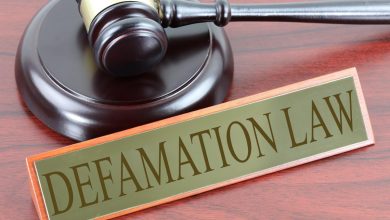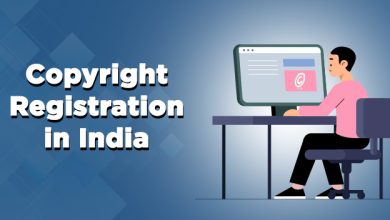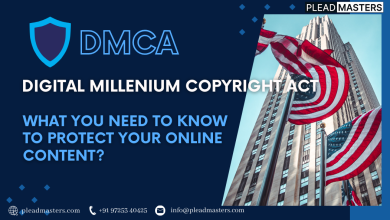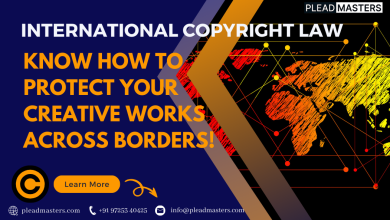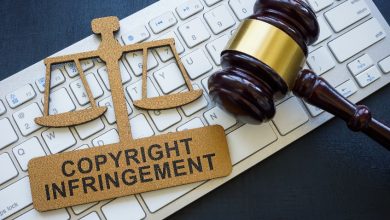Copyright In Digital Era: Balancing Innovation and Protection
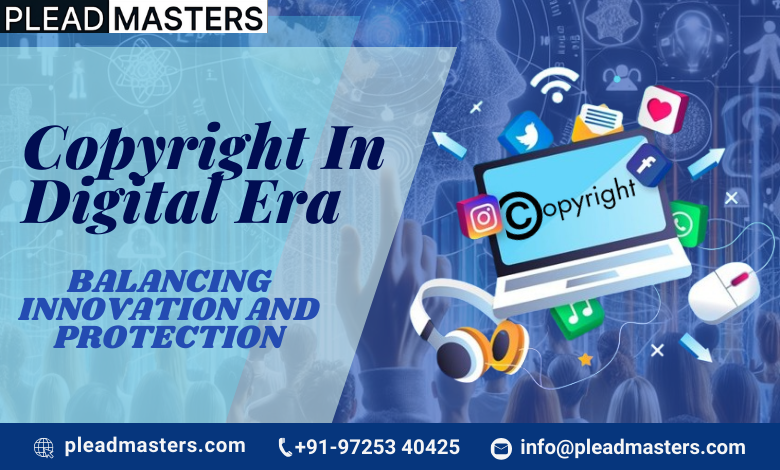
In the calm of the night, a musician sits in front of a laptop, the room filled with the delicate hum of creativity. Each note composed carries a chunk of their heart, a labour of love destined to resound with listeners around the world. Yet, as they browse through social media, a familiar tune catches their attention. It’s their own creation, but it’s been modified, remixed, and shared without acknowledgment- That’s the Copyright Infringement.
The realisation dawns: in the endless expanse of the digital world, the boundary between innovation and protection has ended up perilously lean. The song, once theirs alone, has slipped into the hands of millions, leaving them to wonder—how can creators protect their work in a digital economy that flourishes on moment sharing and boundless inventiveness?
Copyright law is important in securing innovative works and promoting creativity in the rapidly changing digital economy of today. The online content driven by the expansion of streaming services and social media platforms, has brought major changes in intellectual property. This shift has created important opportunities for content makers and buyers, as well as significant challenges. With the expansion of the advanced economy, it is essential for the law to be upgraded in order to guarantee creators receive fair compensation and to encourage the progression of innovation.
The Streaming of Copyright In a New Era
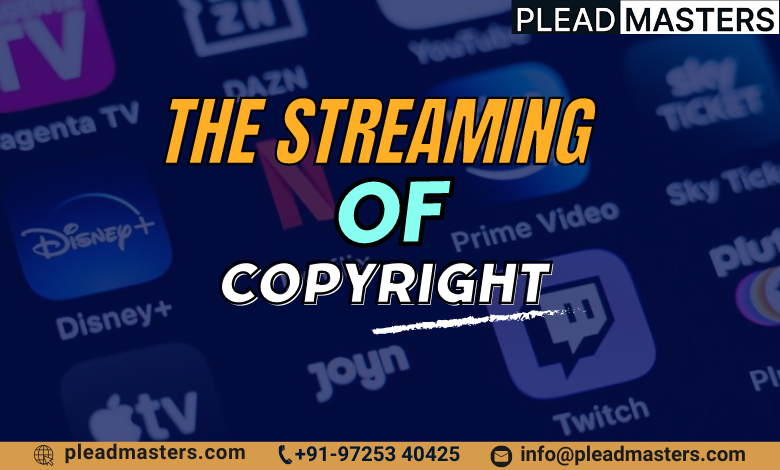
The perspective of streaming sites such as Netflix, Spotify, and YouTube has a basic level that changes how we access and explore media. These platforms offer users an extensive library of music, movies, TV shows, and other forms of content, providing unparalleled comfort. However, this convenience is accompanied by a host of complex copyright issues that must be explored.
Read More; Non-Fungible Tokens & Copyright
Licensing and Revenue Sharing
One of the most significant challenges in the streaming industry rotates around licensing. Streaming platforms must secure the rights to distribute content, often through complex authorising agreements with creators, studios, and record labels. These agreements manage how revenue is shared among the involved parties, raising concerns about whether creators receive a fair portion of the profits generated by their work.
As spilling proceeds to rule the media utilisation scene, the weight to guarantee impartial income conveyance escalate. Makers, particularly autonomous craftsmen, regularly discover themselves at an impediment in transactions with expansive stages, driving to calls for more straightforward and reasonable permitting homes.
Securing Creators’ Rights
The endless amount of content available on streaming platforms has moreover sparked debates about the protection of creators’ rights. With the ease of access to imaginative works, there’s a growing concern that specialists and content makers may struggle to maintain control over their intellectual property. The digital marketplace, while offering modern roads for exposure, also presents the chance of unauthorised utilisation and distribution of copyrighted material.
To address these concerns, it is essential to develop strong mechanisms that protect creators’ rights in the digital space. This includes ensuring that creators are sufficiently compensated for their work and that they hold control over how their content is used and shared online.
Copyright Law in the Social Media Age
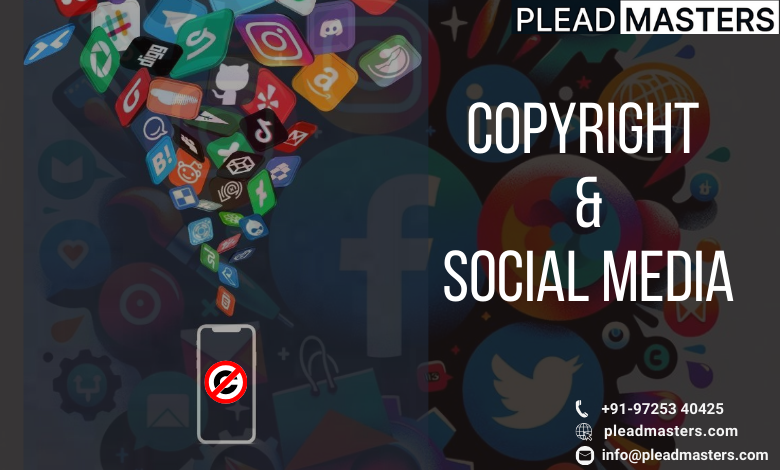
Beyond streaming platforms, social media has also developed as a critical battleground for infringement issues. Platforms like Instagram, TikTok, and Twitter have ended up hubs for content sharing, where millions of users upload and convey images, videos, music, and other creative works daily. This explosion of user-generated content has raised questions around the application of copyright law within the social media age.
User-Generated Content and Fair Utilisation
One of the most disagreeable issues in this area is the concept of fair use. Social media users often create and share content that joins infringed material, such as music clips, images, or video portions. The line between fair use and copyright infringement can be blurry, leading to disputes over whether such content damages copyright law.
Balancing the rights of content makers with the creative opportunity of social media users may be a delicate task. While copyright law aims to protect original works, it must also consider the evolving nature of content creation in the digital age. Clarifying the boundaries of fair use and creating guidelines for user-generated content can help moderate conflicts and cultivate a more agreeable relationship between creators and buyers.
The Role of Content Balance
Social media platforms play a significant part in implementing law through content balance. Automated systems and calculations are often utilised to detect and remove copyrighted material that has been uploaded without consent. However, these systems are not secure and can sometimes result within the wrongful takedown of genuine content, leading to disappointment among users.
To progress the adequacy of substance control, stages must contribute in more advanced advances and create clearer arrangements for taking care of copyright debate. Guaranteeing straightforwardness and decency within the substance balance preparation is basic for keeping up belief between stages, makers, and clients.
The extended duration of copyright in the digital economy
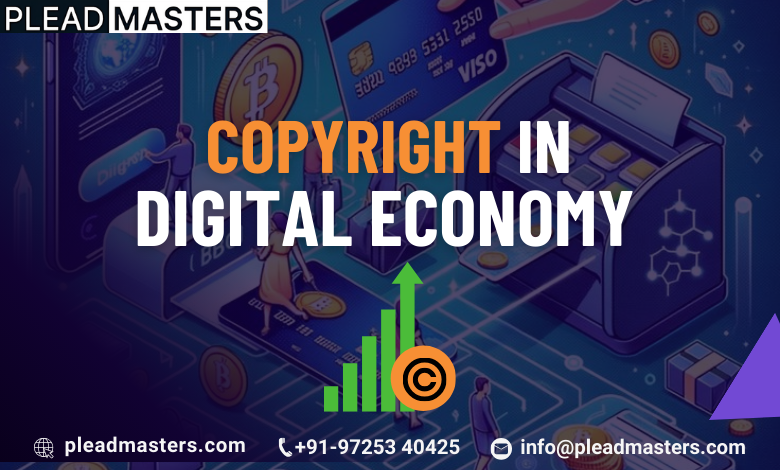
Copyright law is also evolving in line with the digital economy’s advancements. Dealing with streaming platforms, social media, and other digital advancements demands a strategic and flexible strategy for safeguarding intellectual property.
Promoting creativity while safeguarding rights through empowerment of innovation.
One of the main objectives of copyright law is to find a middle ground between safeguarding the rights of creators and fostering innovation. In today’s digital era, achieving this equilibrium is more essential than ever before. This law needs to adapt to meet the specific demands of the digital economy while continuing to support creativity and technological progress.
Global cooperation and alignment.
The global aspect of the digital economy requires increased international cooperation on matters related to copyright. Inconsistencies in law across different countries can complicate the sharing and accessing of content across borders. Ensuring creators’ rights are protected globally through harmonising copyright regulations can guarantee their content is safeguarded no matter where it is shared.
Implementing Technological Solutions
Ultimately, adopting technological solutions can be crucial in tackling copyright issues in the digital economy. For example, blockchain technology has the potential to provide a more transparent and secure way of managing copyright information, enabling creators to better monitor the use of their creations.
Frequently Asked Questions related to “Copyright in Digital Era: Balancing Innovation and Protection”:
- What is copyright, and why is it important in the digital economy?
- Copyright is a legal right that grants creators control over the use and distribution of their original works. In the digital economy, copyright is crucial for protecting creative content and ensuring that creators are fairly compensated for their work.
- How has the rise of streaming platforms impacted copyright law?
- Streaming platforms have revolutionised media consumption, but they also present complex copyright challenges. Licensing agreements, revenue sharing, and the protection of creators’ rights are key issues that have emerged with the growth of these platforms.
- What are the main copyright challenges faced by content creators on social media?
- Content creators on social media often struggle with unauthorised use of their work, unclear boundaries around fair use, and difficulties in maintaining control over their intellectual property in a rapidly changing digital landscape.
- What is fair use, and how does it apply to content shared on social media?
- Fair use is a legal doctrine that allows limited use of copyrighted material without permission from the owner, typically for purposes like commentary, criticism, or parody. On social media, determining whether a post qualifies as fair use can be complex and often leads to disputes.
- How can creators protect their rights in the digital economy?
- Creators can protect their rights by understanding copyright laws, using tools like digital rights management (DRM) and watermarks, and staying informed about changes in copyright legislation. Additionally, they can seek legal advice and use platforms that prioritise fair compensation.
- What role do social media platforms play in enforcing copyright law?
- Social media platforms are responsible for moderating content and ensuring that copyrighted material is not shared without permission. They use automated systems to detect and remove infringing content, but these systems can sometimes mistakenly target legitimate uses, creating challenges for users.
- What is the future of copyright law in the digital economy?
- As the digital economy continues to grow, copyright law is likely to evolve to address new challenges. This may include changes in international copyright regulations, the development of more sophisticated enforcement technologies, and ongoing debates about the balance between innovation and protection.
- How do licensing agreements work in the context of streaming platforms?
- Licensing agreements are contracts between content creators and streaming platforms that outline the terms under which content can be distributed. These agreements determine how revenue is shared and what rights the platform has to use the content.
- What are some common misconceptions about copyright in the digital age?
- Common misconceptions include the belief that anything found online is free to use, that altering content significantly makes it original, and that posting a disclaimer protects against copyright infringement. It’s important to understand the legal implications of using copyrighted material.
- How does international copyright law affect content shared across borders?
- International copyright law can be complex, as different countries have varying regulations. Creators must be aware of these differences, especially when their content is shared or accessed globally, to ensure their rights are protected everywhere their work is distributed.
